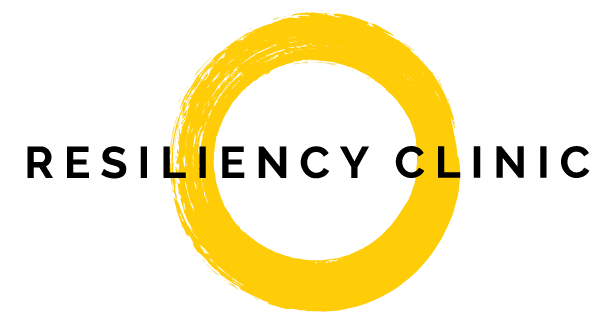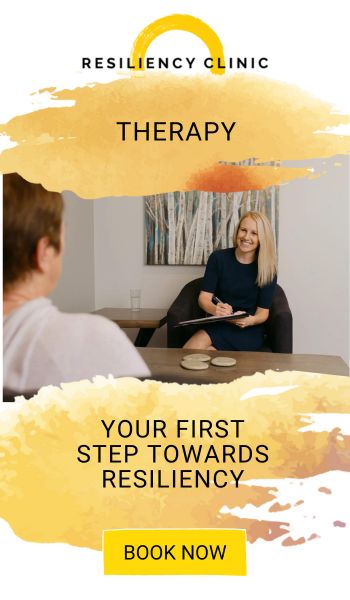Imagine feeling overwhelmed by anxious thoughts, your heart racing, and finding it challenging to focus on daily tasks. You’re not alone – anxiety and depression affect millions of people worldwide. This blog post will guide you through understanding anxiety and depression, the various types of therapy, finding the right therapist, and integrating self-help strategies into your treatment plan.
Key Takeaways
Understanding anxiety and depression is essential to manage them effectively.
Accurate diagnosis, preventive measures and coping strategies help manage symptoms of anxiety and depression.
When selecting a therapist, consider their qualifications, approach & compatibility with you. Integrate self-help strategies such as mindfulness & exercise into your treatment plan. Understand insurance coverage when considering using it to cover services.
Understanding Anxiety and Depression
Anxiety and depression are complex mental health conditions that can significantly impact a person’s daily life. Grasping the symptoms, causes, and risk factors linked to these conditions helps devise effective coping strategies.
Stress management involves understanding the factors that intensify anxiety and learning stress-relief techniques. The American Psychiatric Association emphasizes the importance of understanding and addressing these issues to reduce the intensity of anxious thoughts and feelings of being overwhelmed.
Symptoms and Diagnosis
Identifying the signs and symptoms of anxiety and depression marks the initial step toward seeking help. Anxiety disorders manifest in various physical symptoms, such as intense anxiety, panic attacks, and difficulty concentrating. Mental health professionals, such as psychiatrists and psychologists, can diagnose these disorders using tools like the Diagnostic and Statistical Manual of Mental Disorders (DSM-5). Registered psychotherapists treat these conditions, just as psychologists do, using various modalities and therapy approaches. The main difference is that they do not provide diagnoses.
Anxiety disorders come in various forms, such as:
Generalized anxiety disorder
Panic disorder
Social anxiety disorder
Specific phobias
Every person’s experience with mental health disorders is unique, which means that finding the right treatment plan should be a personalized journey. Take panic disorder, for instance: it can surprise you with sudden episodes of extreme fear, a different experience from having a specific phobia, where your fear is tied to a particular object or situation. Getting the right diagnosis can be an important step to finding a treatment plan that works just for you, setting you on the path to feeling better.
Causes and Risk Factors
Anxiety, which can manifest as anxious feelings, can be attributed to various factors, including feeling anxious due to:
Heredity
Brain chemistry
Temperament
Life occurrences
Research has found that a combination of genetic and environmental factors may increase an individual’s risk of developing anxiety disorders. Women are more likely to suffer from anxiety disorders. It is a prevalent problem which needs to be addressed through proper treatment and support. The reasons for this phenomenon are still being explored, but hormonal factors and differences in testosterone levels may play a role.
Identifying triggers and understanding the causes of anxiety can help in developing effective coping strategies. Some factors that contribute to anxiety disorders include:
Stressful life events
Traumatic experiences
Genetics and family history
Imbalances in brain chemistry
Chronic medical conditions
Substance abuse
Being aware of these factors is critical to alleviate anxiety and prevent its worsening. By doing so, individuals can work towards managing anxiety and maintaining a healthy mental state.
Anxiety and Depression: Prevention and Coping Strategies
Preventive measures and coping strategies are vital in managing symptoms of anxiety and depression. Here are some strategies to consider.
Engaging in regular physical activity
Obtaining enough sleep
Maintaining contact with supportive individuals
Practicing relaxation techniques, such as deep breathing exercises
These strategies can help relieve anxiety, alleviate anxiety symptoms, and assist in stress management and anxiety management.
Exposure therapy, a type of behavioural therapy, can also be beneficial for individuals with anxiety disorders. In exposure therapy, individuals gradually confront their fears in a safe and controlled environment, ultimately reducing anxiety levels. By combining professional therapy with self-help strategies, individuals can regain control over their anxiety and work towards overall well-being.
Types of Therapy for Anxiety and Depression
Various types of therapy are available to help individuals cope with anxiety and depression. These therapies aim to assist individuals in understanding and controlling their disorders.
Cognitive-behavioural therapy (CBT), for example, is an evidence-based approach that has been proven effective in treating anxiety disorders. Other forms of therapy include individual, group, and family therapy, each providing a different environment for individuals to address their mental health concerns.
Individual therapy
Individual therapy offers a one-on-one setting where the therapist can assist individuals in recognizing and addressing the underlying issues contributing to their anxiety and depression. This type of therapy typically involves weekly or bi-weekly sessions, during which the therapist helps the patient examine their thoughts, feelings, and behaviours.
Typical forms of individual therapy include:
Cognitive-behavioural therapy (CBT) focuses on altering negative thought patterns and behaviours, enabling individuals to develop more effective coping strategies for managing anxiety and depression
Psychodynamic therapy explores unconscious thoughts and feelings to gain insight into current behaviours and relationships.
Interpersonal therapy, which focuses on improving interpersonal relationships and communication skills
These different forms of therapy offer individuals various approaches to address their mental health concerns.
In individual therapy, the therapist can provide tailored treatment based on the specific needs and concerns of the patient.
Group therapy
Group therapy is a form of psychotherapy in which one or more therapists work with a small group of clients simultaneously. This type of therapy is particularly beneficial for individuals with anxiety and depression, as it provides a supportive and cooperative environment for individuals to share their experiences and learn from one another.
Group therapy can also help individuals develop better communication and problem-solving skills, as well as improve self-esteem and confidence. The therapist facilitates group therapy sessions, ensuring a safe and supportive atmosphere for individuals to communicate their experiences and learn from one another.
Group therapy can address various conditions, such as anxiety, depression, trauma, and ADHD. It may incorporate different therapeutic approaches, including cognitive-behavioural therapy (CBT), dialectical behaviour therapy (DBT), interpersonal therapy (IPT), and psychodynamic therapy.
Family therapy
Family therapy focuses on enhancing relationships and resolving conflicts within a family. This form of therapy can be beneficial for individuals with anxiety and depression, as it helps family members understand and support one another and work together to develop strategies for managing the disorders.
During family therapy sessions, the therapist works with the family to identify and address issues, formulate strategies to cope with anxiety and depression and improve communication and understanding among family members. By involving the entire family in the treatment process, family therapy can create a more cohesive and supportive environment, ultimately leading to more effective anxiety and depression management. Sometimes, family members do their own individual therapy instead, which can also result in significant gains.
Find the Right Therapist for Anxiety and Depression

Choosing the right therapist is key to successful treatment of anxiety and depression. The ideal therapist should have the appropriate qualifications, a therapeutic approach that aligns with your needs and preferences, and a strong compatibility with you.
Subsequent sections will explore factors to consider in choosing a mental health professional, enabling you to select an appropriate therapist for your journey toward improved mental health.
Consider the therapist’s qualifications.
When choosing a therapist, ensure they:
Are appropriately licensed with a regulatory body
Possess expertise in treating anxiety and depression.
Possess a graduate degree, such as a master’s or Ph.D., in psychology, psychotherapy, or a related field.
Have completed the requisite number of supervised clinical experience hours and supervision hours.
Experience in treating anxiety and depression is crucial, as it enables the therapist to gain a greater understanding of the patient’s condition and offer more effective treatment. It is also essential to verify that the therapist’s services are covered under your insurance plan if you have one.
Evaluate their therapeutic approach.
It’s necessary to evaluate the therapist’s therapeutic approach to align their methods with your needs and preferences. There are various types of therapeutic approaches, including:
Cognitive Behavioural therapy
Narrative therapy
Interpersonal therapy
Psychodynamic therapy
Each approach has its own set of techniques and strategies employed to assist individuals in addressing and managing their mental health issues.
When assessing a therapist’s approach, consider their credentials, theoretical orientation, and the techniques and strategies they employ. Additionally, it is essential to evaluate whether the approach is compatible with your needs and preferences. For example, if you prefer a more structured, goal-oriented approach, a therapist who specializes in cognitive-behavioural therapy (CBT) might be more suitable for you.
Assess compatibility
Evaluating your compatibility with a therapist is crucial in forming a strong therapeutic bond. Compatibility refers to the connection between a client and their therapist, which should be built on trust, understanding, and a sense of comfort in disclosing thoughts and feelings. Various elements, including shared values, objectives, and personality, may impact compatibility.
To evaluate compatibility with a therapist, consider your comfort level, whether you feel understood, and whether you feel secure in expressing yourself. If you do not feel compatible with your therapist, it is essential to express your concerns to them and, if necessary, search for another therapist who may be a more suitable fit.
Integrating Self-Help Strategies

Infusing self-help strategies into your treatment plan for anxiety and depression can greatly boost your overall well-being. Practices such as mindfulness, exercise, and social support can complement professional therapy and empower you to take control of your mental health.
The following sections will discuss these self-help strategies in more detail, providing you with effective tools to manage anxiety and depression.
Mindfulness and meditation

Practicing mindfulness and meditation techniques can help manage anxiety and depression symptoms effectively. Mindfulness is focusing on the present moment and being aware of one’s thoughts, emotions, and sensations without judgment. Meditation, however, involves dedicating a specific period to focus on a particular subject, such as your breath or a mantra.
Breathing exercises are powerful relaxation techniques that help alleviate anxiety while directing your attention to the present moment. For example, try inhaling for four counts and exhaling for eight counts, focusing on the sensation of your breath as it moves in and out of your body.
Regular practice of mindfulness and meditation can improve your overall well-being and help you manage anxiety and depression more effectively.
Exercise and physical activity

Participating in consistent exercise and physical activity has been demonstrated to enhance mental well-being and alleviate symptoms of anxiety and depression. Activities such as:
walking
running
swimming
yoga
Engaging in regular physical activity can be beneficial for managing anxiety and depression, as well as reducing muscle tension. Research has shown that regular physical activity can help decrease stress, enhance mood, and augment self-esteem.
To incorporate exercise and physical activity into your treatment plan, start with small, achievable goals. Choose activities that you enjoy and can easily integrate into your lifestyle. Remember to consult a medical professional before starting any new exercise program to ensure it is safe and appropriate.
Social support
Building a solid social support network is essential in coping with anxiety and depression. Social support refers to the emotional and practical assistance provided by family, friends, and other individuals in your life. A strong support network can offer a sense of belonging and connection, helping to reduce stress and improve overall well-being.
To build a social support network, you can:
Reach out to family and friends
Join a support group
Consult with a therapist or counsellor for support
Connect with individuals who are experiencing similar circumstances through online support groups and forums
By nurturing your social support network, you can better cope with anxiety and depression and foster a more resilient mindset.
Navigating Insurance and Payment Options
Comprehending your insurance coverage and payment options for anxiety and depression therapy is crucial in getting the help you need. Most insurance plans provide coverage for mental health services, such as therapy, counselling, and medication management.
In the following sections, we will discuss how to understand your insurance benefits and explore affordable therapy options.
Understanding your insurance coverage for anxiety and depression
Your insurance coverage for mental health services, including therapy and group sessions, depends on your insurance provider and the specifics of your plan. To understand the details of your plan, contact your insurance provider directly and ask for specific information about the amount of coverage and which registered professionals are covered.
When considering a therapist, it is important to verify that they are registered with your insurance provider if you plan to use insurance to cover their services. In-network providers have a contract with your insurance company and accept a predetermined rate for services, while out-of-network providers do not have a contract and may charge more.
Finding affordable therapy options
If your insurance coverage is limited or you do not have insurance, affordable therapy options are still available. Sliding scale fees, for example, are fees that are dependent upon a person’s income and ability to pay, making therapy more accessible to a wider range of clients. Community mental health centers also offer mental health services at a lower cost, typically using sliding scale fees.
Online therapy platforms and teletherapy services can be another affordable option for therapy. These platforms provide access to mental health professionals who offer therapy services virtually, often at a lower cost than traditional in-person therapy.
By exploring these affordable therapy options, you can ensure that you receive the support you need without breaking the bank.
Summary
In conclusion, managing anxiety and depression is a multifaceted process that involves understanding the disorders, finding the right therapist, and integrating self-help strategies into your treatment plan. By combining professional therapy with practices such as mindfulness, exercise, and social support, you can take control of your mental health and work towards a happier, healthier life. Remember, seeking help and finding effective strategies to manage anxiety and depression is not a sign of weakness but rather a courageous step towards personal growth.
Frequently Asked Questions
What therapist is best for anxiety and depression treatment?
It is best to seek help from a mental health professional such as a psychologist, psychiatrist, clinical social worker, or psychiatric nurse for anxiety.
What is a common therapy used to treat anxiety and depression?
CBT, or cognitive behavioural therapy, is a widely used and highly effective treatment for anxiety and depression that focuses on modifying thought and behavioural patterns.
It has been shown to produce results in 12-16 weeks, depending on the individual.
Does therapy actually help anxiety and depression?
Therapy can be tailored to an individual’s needs and provide them with coping strategies to manage their depression or anxiety. It can also help uncover underlying causes, allowing them to look at situations in new ways and develop better skills.
Overall, therapy is an effective treatment for anxiety and depression.
What is the best management in treating anxiety or depression?
For the best management of anxiety or depression, research suggests psychological therapies such as cognitive behaviour therapy are most effective in the long term.
Additionally, newer SSRIs and SNRIs can provide relief with fewer side effects, and a doctor may suggest benzodiazepines if needed.
What are the signs and symptoms of anxiety and depression?
Signs and symptoms of anxiety and depression can include intense anxiety, panic attacks, difficulty concentrating, and feelings of sadness or hopelessness.






